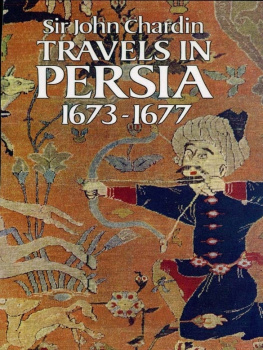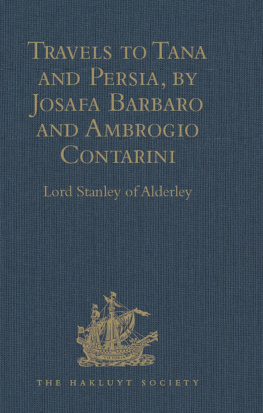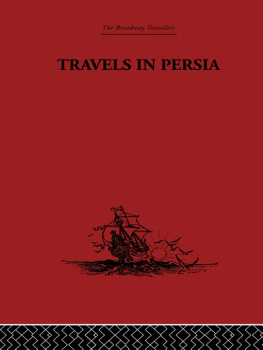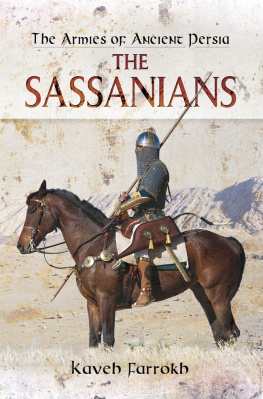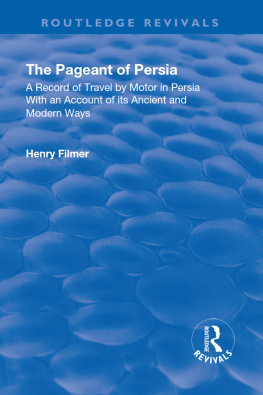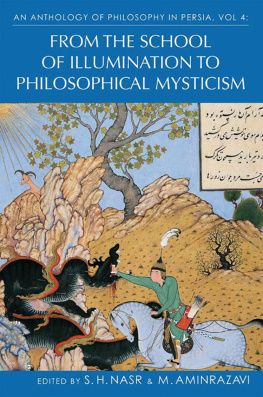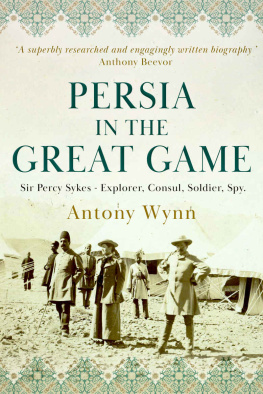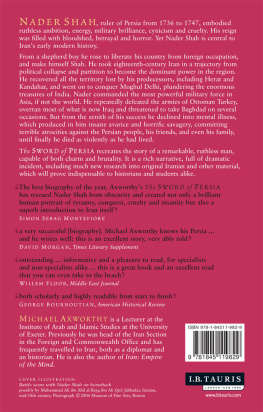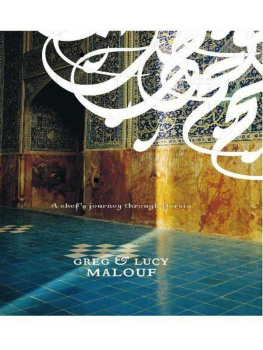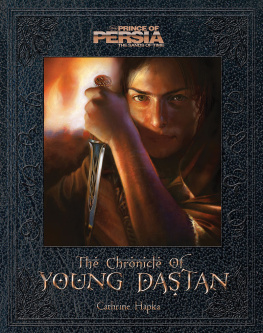Sir John Chardin - Travels in Persia, 1673-1677
Here you can read online Sir John Chardin - Travels in Persia, 1673-1677 full text of the book (entire story) in english for free. Download pdf and epub, get meaning, cover and reviews about this ebook. year: 2012, publisher: INscribe Digital;Dover Publications, genre: Romance novel. Description of the work, (preface) as well as reviews are available. Best literature library LitArk.com created for fans of good reading and offers a wide selection of genres:
Romance novel
Science fiction
Adventure
Detective
Science
History
Home and family
Prose
Art
Politics
Computer
Non-fiction
Religion
Business
Children
Humor
Choose a favorite category and find really read worthwhile books. Enjoy immersion in the world of imagination, feel the emotions of the characters or learn something new for yourself, make an fascinating discovery.
- Book:Travels in Persia, 1673-1677
- Author:
- Publisher:INscribe Digital;Dover Publications
- Genre:
- Year:2012
- Rating:4 / 5
- Favourites:Add to favourites
- Your mark:
- 80
- 1
- 2
- 3
- 4
- 5
Travels in Persia, 1673-1677: summary, description and annotation
We offer to read an annotation, description, summary or preface (depends on what the author of the book "Travels in Persia, 1673-1677" wrote himself). If you haven't found the necessary information about the book — write in the comments, we will try to find it.
First inexpensive edition of great travel classic offers detailed, sharply observed portrait of 17th-century Persia. Vivid record of life at court of Shah: lavish banquets and entertainments, diplomatic negotiations, intrigues and cruelty, more. Also, soil and climate, flora and fauna, manners and customs, trade and manufacture, and many other aspects. 9 illustrations.
Travels in Persia, 1673-1677 — read online for free the complete book (whole text) full work
Below is the text of the book, divided by pages. System saving the place of the last page read, allows you to conveniently read the book "Travels in Persia, 1673-1677" online for free, without having to search again every time where you left off. Put a bookmark, and you can go to the page where you finished reading at any time.
Font size:
Interval:
Bookmark:
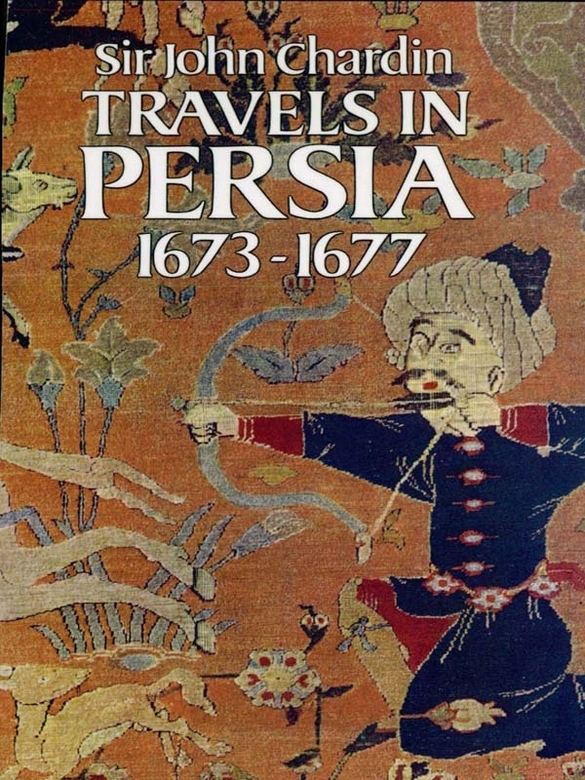
The Authors Arrival at Ispahan. Monsieur D L Hays Expedition to the East Indies, and his Miscarriage; with the Occasions of it. Wild Oxen at Trinc-male. The particular Qualities of the Flesh of that Beast. Cannonading and Taking of Coromandel.
B EING arrivd at Ispahan, my Companion and I went and lodgd at the Convent of the Capucin Friars, which is almost in the Heart of the Town, and at a little distance from the Royal Palace. I met with a Bag full of Letters there, which were directed to me from almost all Parts of the World. Those from Constantinaple, gave me a Detail of the Campain which the Turks made in Polond; having the foregoing Year, with little or no Opposition, passd the Great River Neister, they ravagd the finest Provinces, and took the famous Fortress of Camineick, which was the Bulwark of Poland. I was, among other things, informd, that the Ottoman Army had passd the Danube, over a Bridge five hundred Geometrical Paces long, built by the greatest Care and Diligence, and at the Expence of the Prince of Moldavia; and because the Fabrick did not please the Grand Seignior, he deprivd that unfortunate Prince of his Principality, and Sentencd him to pay a Fine of a hundred and fifty thousand Crowns.
My Letters from the Indies containd an Account of the Voyage of Monsieur De la Hay, Vice-Roy of Madagascar, who set out from Rochel with a considerable Squadron, in the beginning of the Year 1670. He was sent upon the Memorials of Monsieur Carron, Director General of the French Company, to put some great Designs in Execution, and among others, to Seize Banca, a little Island Scituated to the East of Sumatra, and pretty near Batavia. This little Isle of Banca, which is uninhabited, was not in any Bodys Hands before that time. M. Carron judgd it a Place proper to be the principal Magazine of the French Company in the Indies; and he had formd a Design to seize it by Surprize: But the Hollanders, who were very vigilant and circumspect in regard to the Dominion which they had got in those Countries, hit exactly upon the Aim of the French Fleet, as soon as they saw it was equipping. They in vain gave out in France, that it was designd for the West-Indies, they would not be bubbld under that Pretext. They dispatchd three Advice-Boats one after another to Batavia, with Orders for the Council to take Possession of Banca, which was executed even before Monsieur De la Hay arrivd in the Indies. His was a long Voyage, and to his great Misfortune, he put in at Madagascar, where he took it in his Head to make War with the People of the Island, at the Sollicitation of the French, who were Establishd there. He lost six Months there, and near a thousand Men, who might have been better employd elsewhere; for he got nothing by quarrelling with the Negroes, but on the contrary, he enraged them to such a Degree, that they would never after be at Peace, nor keep up any Commerce with the French, and at last drove them quite out of the Island.
Monsieur De la Hay went from Madagascar to Surat, and made a stay there till the beginning of the Year 1672; and then he set Sail from thence with Monsieur Carron, contrary to whose Advice he had receivd Orders not to Act. The Fleet at that time, consisted of six Capital, Ships and four Pinks; they put into Harbour at Goa, on the 21st of January , and met with the Great-Britain, another of the Kings Ships, with two Pinks. These thirteen Vessels steerd their Course towards Ceylan, and arrivd on the 21st of March at the Bay of Coti-ari, commonly calld the Bay of Trinc-male, which is a narrow, but good Bay, eight Degrees and thirty Minutes north Latitude, looking to the North East, and has a sound Bottom. The Hollanders had built a small Fortress about a League from the Shoar. There were but ten Men in Garrison, and they abandond it upon the first Sight of the French Fleet.
q Monsieur De la Hay having cast Anchor, sent some Deputies to the King of Candy, (the lawful Lord of all the Isle of Ceylan) who sent others back again to him; and after several goings and comings, they concluded a Treaty, by which that Indian Prince gave to the King of France, the Bay of Trinc - male , and the Fort which the Hollanders evacuated. The Contract of this Donation was regularly drawn up, and executed in due Form, and they took Possession of the Bay and Fort under several Salvos of the Artilery, and with all the usual Ceremonies. A few Days after they began to build a Fort at the Mouth of the Bay, and another above the Shore.
During these Negotiations a Sickness spread, and ragd with great Violence among the Fleet. The Disease that reignd most, was a burning Fever. The Europeans call the Distempers which they catch at Ceylan, the Cinnamon Sickness, because the strong Scents of that Wood inflame the Humours. Several dyd of it, but the greater part of them recoverd, tho they too found themselves in the midst of Penury and Want, as soon as they got rid of their Fevers; for the Victualling of the Fleet fell short in the Month of April, notwithstanding the good Management of the Vice-Roy, who orderd all the Provisions to be bought up and sold amongst them again, not permitting any Person to deal with the Country People for Provisions, for fear of Waste. The most common Meat at Trinc-male , is Wild Oxen, yet they eat of it but seldom, and then sparingly, by Reason of a Property which the Flesh of that Animal has very particular to itself, and yet more strange and surprizing: It engenders Imposthumations in the same Parts, and as painful as those that are contracted from lewd Women. But that which is still more particular, is, that there is no other Cure, but abstaining from the Flesh which occasiond them. They sent three Ships to the Coast of Cormandel for Provisions, but those Vessels being taken in their return by the Hollanders, the Fleet was reducd to so great a streight through the scarcity of Victuals, that although the two Fortresses which they were building, were not finishd, they were compell d to quit the Place, for fear of Perishing by Famine. They left behind them three hundred and fifty Men to go on with the Work, and a large Vessel for their Use, calld the St. John .
The Pretext which the Hollanders made use of, to give a colour of Reason to their taking the three Ships, was, that they carried Provisions to their Enemies, for so they esteem the King of Candy, and the Inhabitants of Trinc-male. They offerd some time after to restore them, and even pressd Monsieur De /a Hay to receive them, or to take his Choice of some others out of the Dutch Fleet in lieu of them. They did not know then in the Indies that France had declard War with Holland; but the News coming a little while afterwards to the Hollanders, those Ships were judgd to be good Prize; and the Dutch Fleet sailing to Trinc-male, they Seizd the Ship, took the two Forts, and made all the French Prisoners.
Monsieur De /a Hay arrivd the 22d of May on the Coast of Coromandel, within sight of St. Thomass Island. It is a little Place belonging to the King of Colconda, which the Portugueze were in Possession of for near a Century and fortifyd it very well for that Country: The Walls are of Free-Stone, very high, and mighty thick, having regular Bastions about it, but no other Fortifications. The Vice-Roy sent to the Commandant of the Place, to desire Victuals for ready Money. He refusd to sell any, excusing himself on the number of the Ships of the Fleet, which could not (as he said) be supplyd with Victuals, without leaving the Town itself quite destitute and unprovided. They did not know whether this Answer was sincere, or given rather at the suggestion of the Hollanders, who facd this Fleet every where, and followd it to all Parts with another. The Vice-Roy, who had no Provisions, seeing himself disappointed in that manner, causd the Town to be Cannonaded with that Violence, that in the space of four Hours they hung out a White Flag. He thereupon sent a Shallop on Shore, to demand whether they would deliver up the Town. The Commandant replyd, that he did not think of doing that, but he was ready to let them have as much Provisions as they would for their Money. The Vice-Roy sent word back to the Commandant, That since he had been forcd to compel him by dint of Cannon-Shot, to comply with what was so equitable and just, he expected to be reimbursd the Charges thereof. The Commandant desird to know how often he had fird, and what the Price was of each Shot? They answerd, that they had fird five Thousand three Hundred times, and would have twenty Crowns for each Shot. The Commandant, to gain time, and to have leizure to consider what Resolution he should take, answerd, That he could do nothing without the Order of the Governor of the Province; that he was just then going to write to him, and would make his Answer known to the Vice-Roy.
Font size:
Interval:
Bookmark:
Similar books «Travels in Persia, 1673-1677»
Look at similar books to Travels in Persia, 1673-1677. We have selected literature similar in name and meaning in the hope of providing readers with more options to find new, interesting, not yet read works.
Discussion, reviews of the book Travels in Persia, 1673-1677 and just readers' own opinions. Leave your comments, write what you think about the work, its meaning or the main characters. Specify what exactly you liked and what you didn't like, and why you think so.

